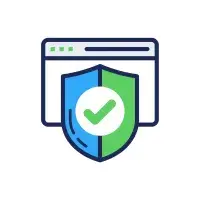
When choosing a content management system (CMS), organizations must consider security as a top priority. Among the leading CMS platforms, Drupal and WordPress are popular choices, both offering unique features and benefits. In this blog post, we will explore the security advantages of Drupal 11 over WordPress, highlighting why Drupal is often the preferred choice for those with stringent security requirements.
Security Measures and Infrastructure
Drupal's development community is renowned for its strong focus on security. Each new version of Drupal extends its robust security infrastructure, with Drupal 11 providing advanced measures that ensure the safety of websites against a wide range of online threats. This proactive approach includes continuous security assessments and a dedicated security team that reviews potential vulnerabilities, ensuring quick responses to any emerging threats.
In contrast, while WordPress also benefits from a large and active community, its popularity makes it a more frequent target for attackers. WordPress relies heavily on third-party plugins and themes, which can introduce vulnerabilities if not regularly updated or vetted thoroughly. Drupal, on the other hand, tends to minimize such risks due to its rigorous coding standards and fewer dependencies on third-party extensions.
Customization and Access Control
One of Drupal's standout security features is its flexible access control system. Drupal 11 enables administrators to create and manage sophisticated user roles and permissions, thus ensuring that users can access only the information and functionalities they are authorized to use. This granularity in access control is essential for securing sensitive data and maintaining user privacy, features that are not as robust in WordPress, which may require additional plugins to achieve similar functionality.
Built-in Security Technologies
Drupal 11 includes several built-in security technologies aimed at protecting websites out of the box. These include secure coding practices and extensive testing processes, which help prevent common vulnerabilities like SQL injection, cross-site scripting (XSS), and cross-site request forgery (CSRF). Additionally, Drupal's configuration and deployment strategies inherently support a secure setup, reducing the chances of common misconfigurations that could expose a website to attacks.
While WordPress offers some security plugins, they are not integrated into its core system. This reliance on external plugins can lead to inconsistencies in security practices and updates, posing potential risks to users who may install poorly maintained or inadequately tested third-party solutions.
Regular Updates and Community Support
Another critical advantage of Drupal 11 is the regular release of security updates and patches. The community's dedication to maintaining and improving the system is evident in its commitment to swift updates that address any detected vulnerabilities. Furthermore, Drupal's community fosters a culture of security awareness and education, providing users with the resources needed to safeguard their sites effectively.
WordPress also offers updates, but due to the sheer volume of plugins and themes, it can be challenging for users to keep track of and apply updates to third-party components regularly. This fragmented update system can leave websites susceptible to attacks if plugins are not updated promptly.
In conclusion, while both Drupal 11 and WordPress offer valuable tools for website development, Drupal 11 provides more advanced security advantages that meet the high demands of users requiring stringent security measures. Its integrated security features, robust access control, and proactive community support make it a superior choice for organizations prioritizing data safety and integrity.

